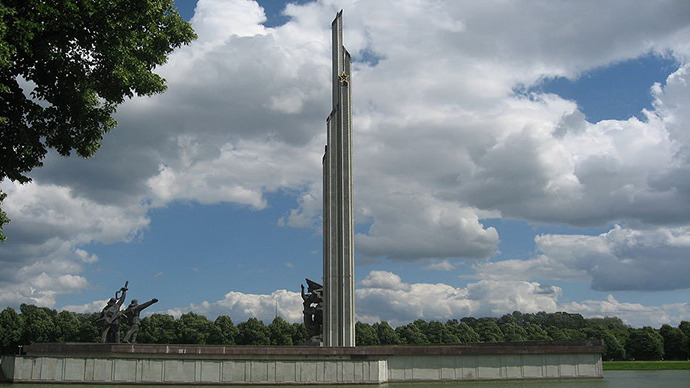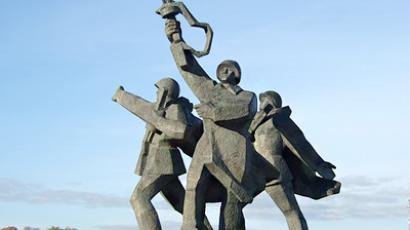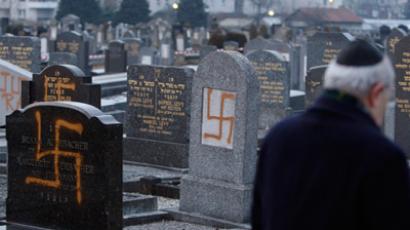Latvian party calls for demolition of Soviet Liberator Memorials

With less than a week left before Victory Day on May 9, the Latvia’s National Alliance party has come up with an initiative to demolish the Memorial to Soviet Liberators in the country’s capital, Riga.
According to architect Aleksandr Kirshtejns, who is the National
Alliance’s candidate for the Riga mayoralty, the memorial should
have been brought down back in 1991 with the rest of the Soviet-era
monuments.
“But now the time is lost and we must move towards it
step-by-step,” Kirshtejns is cited as saying by Mixnews.lv.
The National Alliance, which came fourth in 2011 parliament
elections and holds posts of the minister of justice and minister
of culture in the current government, plans to turn Victory Park,
where the monument is situated, into an amusement park.
The party meeting decided that the area must have plenty of space
for active recreation and different sporting events. It’s also
proposed to erect metal plates, with text in several languages
describing “the true meaning of Soviet liberation for the
Latvian people.”
The official stance of the current Latvian government is that the
country was occupied by the USSR from 1940–1991. Many local
politicians believe that May 9, 1945, did not bring Latvia
liberation from the Nazi invaders, but rather became just the
continuation of the Soviet seizure.
But ethnic Russians, who make up around 26 per cent of the Latvian
population, think differently, with around 200,000 gathering
annually at the Liberators’ Memorial for the Victory Day
celebration.
It’s not the first time the issue of the monument’s removal has
been raised in the country, Latvia’s Defense Minister Artis Pabriks
previously calling it “outmoded”.
In 1997, local neo-Nazis laid a bomb in the memorial’s foundation,
but the blast was prevented, with organizer Igors Shishkins
sentenced to two years and eight months in prison.
The Memorial to Soviet Liberators consists of a 79-meter-tall
stele, the sculpture of Mother Motherland and three statues of
soldiers.
The relocation of the Bronze Soldier, the Monument to the
Liberators of Tallinn, in neighboring Estonia back in 2007 resulted
in two days of riots, which were the biggest in the country’s
history.














